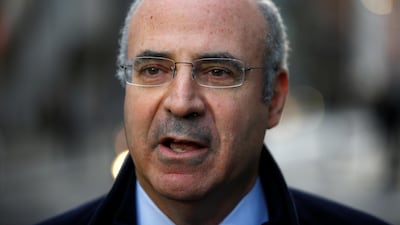A Russian multi-millionaire who blew the whistle on a $230 million tax fraud probably died of natural causes rather than being the victim of a Kremlin-inspired mafia hit, a British coroner has found.
Alexander Perepilichnyy, 44, collapsed and died while jogging near his home on an exclusive estate in Surrey, southern England, some three years after fleeing from Russia where he faced threats over his role in a huge money laundering operation.
The coroner Nicholas Hilliard on Wednesday ruled out suggestions that Mr Perepilichnyy was murdered on the orders of Russian president Vladimir Putin or those close to him.
He said that he could not “completely eliminate all possibility he was poisoned” but said that he was satisfied that “I can properly and safely conclude that it was more likely than not that he died of natural causes.”
“There really is no direct evidence that he was unlawfully killed,” he added.
The case has been closely scrutinised for six years after initial police failures meant that opportunities to secure vital evidence including security camera footage and medical evidence were missed. Officers also lost samples of the contents of the dead man’s stomach and computer evidence about the case.
It emerged soon after his death that Mr Perepilichnyy had been giving evidence to Swiss prosecutors about a notorious Russian tax fraud carried out against an investment run by the US financier, Bill Browder. He had also spoken with officials from Mr Browder’s firm, Hermitage, before he died.
____________
Read more:
Deaths in Britain from suspected poisoning
UK warns of Russia reprisals as ‘poisoned’ spy fights for life in hospital
____________
Speaking after the inquest concluded on Wednesday, Mr Browder – who describes himself as Mr Putin’s enemy number one – said that the coroner was “working with a puzzle with only 20 per cent of the pieces because of Surrey Police’s incompetence”.
The findings in the case of Mr Perepilichnyy’s death came as relations between the two countries are in deep freeze following an assassination attempt of former double agent Sergei Skripal in UK soil in March.
The circumstances of Mr Perepilichnyy’s death have always been less clear-cut as he had never been a vocal critic of the Putin regime, unlike Alexander Litvinenko, an anti-Putin former agent who was killed in a Kremlin-ordered poisoning in 2006, or an alleged traitor like Mr Skripal.
Mr Perepilichnyy’s case was one of a number of suspicious fatalities involving UK-based Russians and their associates which were investigated for potential Russian state involvement. They included Boris Berezovsky, the oligarch and one-time Putin-backer, who police say killed himself at his home in the UK in 2013.
He had fallen out with Mr Putin and lost his fortune after a high-profile court battle with fellow oligarch Roman Abramovich but members of his family believe he was murdered.
Concerns were first raised over Mr Perepilichnyy’s death after it emerged that he acted as a “personal banker” for members of a Russian organised crime group that were involved in tax fraud.
A lawyer working on behalf of Mr Browder, Sergei Magnitsky, was arrested after uncovering details of the scam and died in prison after suffering brutal conditions. The case has led to countries including the US and Canada adopting “Magnitsky laws” to punish human rights abusers.
Mr Perepilichnyy came forward to speak with Mr Browder following the death of Mr Magnitsky, the inquest was told.
He took out a series of life insurance policies just before he died but did not employ bodyguards or change his travel patterns, suggesting he did not feel he was at imminent risk of murder, said Mr Hilliard.

